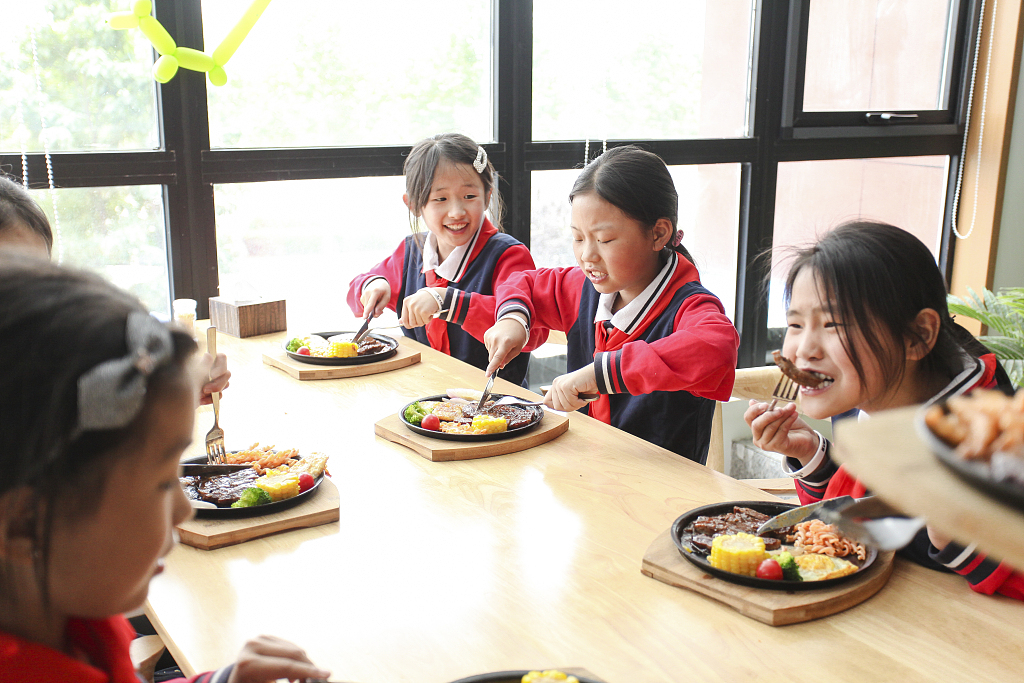
Photo: VCG
Guideline urges more involvement by NGOs and clarifies officials' responsibilities
Measures rolled out by the authorities to improve the care of children left behind by parents who move away from home and that of other juveniles facing difficulties have provided a timely lift for the millions of children in China and NGO leaders like Liu Xinyu.
A guideline published by the Ministry of Civil Affairs and 10 other government departments on May 27 called for improvements to institutions devoted to helping and protecting juveniles and children left behind by parents who move away from home to find work.
It also encouraged more NGOs to take part in the protection, care and provision of services for children faced with difficulties in life, with the authorities set to purchase more services from NGOs.
Liu, who is chairman of On the Road to School, a Beijing-based NGO devoted to helping children, said the measures will enable better protection of left-behind children by giving incentives to all sectors of society, including NGOs, to extend a helping hand.
"We look forward to full implementation of the new policies. NGOs can play a unique role in caring for the mental health of left-behind children," he said.
NGOs could also pilot new models in the care and protection of children facing difficulties, and enable the authorities to promote those models among larger groups of children, he said.
There were 6.97 million left-behind children in China last year, down 22.9 percent from 2016, according to the Ministry of Civil Affairs.
Gao Xiaobing, vice-minister of civil affairs, told a news conference last year that the decrease could be attributed to factors such as more children migrating to cities with their parents and more migrant workers returning to their homes.
There were 288 million migrant workers in China last year, with more than half born after 1980, according to the National Bureau of Statistics. Many had little option but to leave their children at home because of the difficulties they faced in registering for schools in cities.
According to a report by On the Road to School and a research team from Beijing Normal University, more than 40 percent of left-behind children meet their parents no more than twice a year.
The plight of left-behind children made headlines nationwide after four siblings left without parental care died after ingesting pesticide in Bijie, Guizhou province, in 2015.
The guideline also clarified the responsibility of "children directors" on village committees and "children supervisors" at township-level authorities to ensure officials take responsibility for the care and protection of children at the primary level.
Ni Chunxia, deputy head of the Ministry of Civil Affairs' child welfare department, said one challenge for officials is discovering cases of children in serious difficulty.
"With the children scattered in villages, streets and various townships, we need a special work force to locate them. That is a premise for the follow-up measures to help them," she said.
"That is why we need to bolster our strength at the primary level to ensure timely discovery of the cases and make sure they are reported to higher-level authorities."
Ni also underscored the importance of ensuring parents assume their responsibilities as guardians of their children.
"The emotional demands that the children are in most dire need of could only be met by their parents," she said. "We need joint action from different departments to discipline parents who fail to assume their responsibilities."
Liu, the NGO chairman, said it would be futile to offer care to left-behind children without enabling their parents' participation.
"We must also prevent the stereotypes that left-behind children are children faced with problems," he said. "Other than a temporarily difficult life, they are no different from other children. We must not build prejudice against them."


